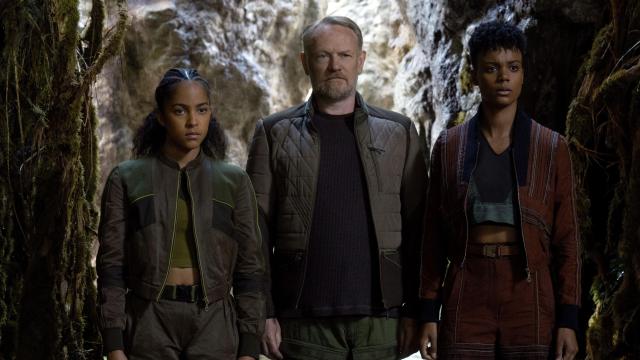Yes, there’s a lot of genre TV on a lot of different streamers—and yes, Apple TV+’s Foundation is a high-concept show at the midpoint of its second season. But if you’re a sci-fi fan, and you’re not tuning in (it’s adapted from the works of Isaac Asimov), you’re missing out on unique characters, multiple threads of intrigue, detailed production design, and more, contained in a show that truly feels like it’s found its footing.
Here are 10 reasons you should be watching Foundation, which drops a new instalment—episode six, “Why the Gods Made Wine”—today on Apple TV+.
Lee Pace
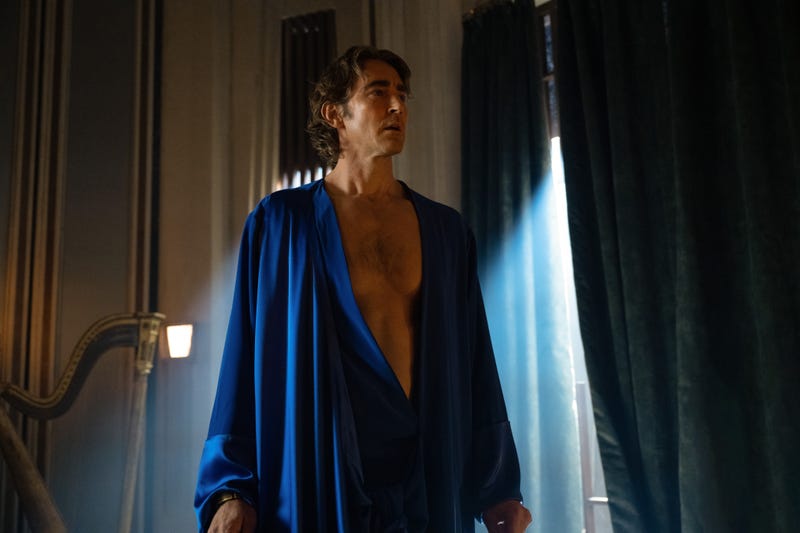
Leading with the obvious, but Foundation knows what’s up. Not for nothing does season two’s first episode show Lee Pace’s Brother Day—the middle-aged incarnation of Empire, the galaxy’s dynasty of cloned Cleons going back centuries—nakedly fighting off assassins who’ve rudely interrupted an intimate moment in his bedroom. And he’s not just eye candy; Pace’s performance of Day as a petulant, overly confident ruler encompasses both campy dramatics and unexpected nuance.
The humor
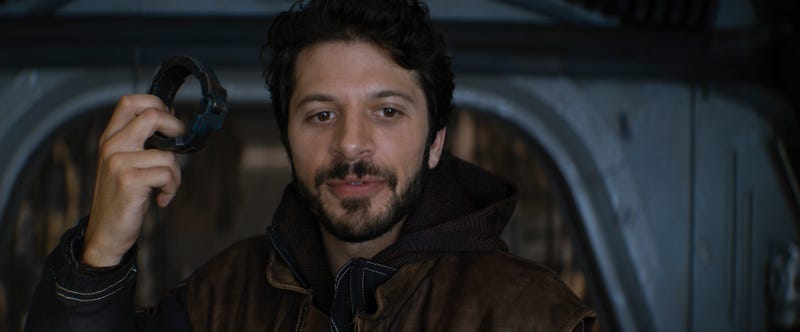
Foundation is not a comedy, as showrunner and executive producer David S. Goyer reiterated to io9 in an interview ahead of season two, but its tone has noticeably more humour this time around. That was a “deliberate choice,” Goyer explained, adding, “I think the story is broad enough and big enough that you can have some moments of levity.” That levity is sprinkled around, but a lot of it comes courtesy of new season-two character Hober Mallow (Dimitri Leonidas). He’s a clever hustler with a good heart—kind of the Han Solo type—who’s pulled into the plot by forces beyond his control, and Foundation benefits greatly from his mischievous energy.
The embrace of inclusion and diversity
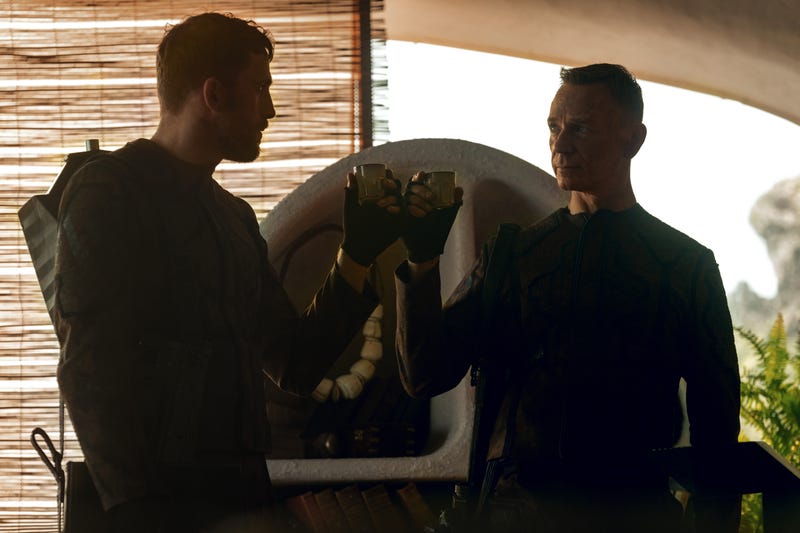
Season one of Foundation updated some of Asimov’s characters to reflect more diversity—casting actors from a variety of races and backgrounds, and switching male book characters Gaal Dornick and Salvor Hardin into women for the series. Season two continues this momentum with the character of Bel Riose (Ben Daniels), a decorated but rebellious general serving hard time on a prison planet. When Empire decides they need to press him back into service, he agrees only after he learns that his husband, Glawen Curr (Dino Fetscher)—who he believes was executed years prior—is still alive. Foundation’s world may have a lot of problems, but homophobia is refreshingly not one of them; the fact that queer people exist and have loving relationships is simply woven right into the story. Beyond that, Daniels and Fetscher bring a lot of depth to their characters, showing a long-awaited reunion that’s tender but also challenged by disagreements and sci-fi messiness.
The robot intrigue
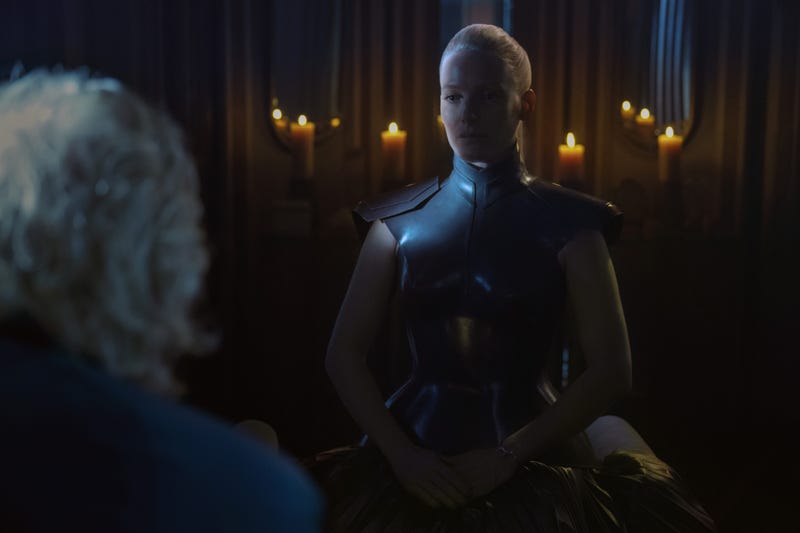
Season two hints at layers lurking within Lady Demerzel (Laura Birn), Empire’s fiercely loyal android companion and advisor. At the point in Foundation’s season, it’s not entirely clear what’s going on with her—but this is Asimov and she’s a robot, so her motivations (and what appear to be some carefully orchestrated manipulations?) are absolutely something the viewer can’t help wondering about.
All the mind games
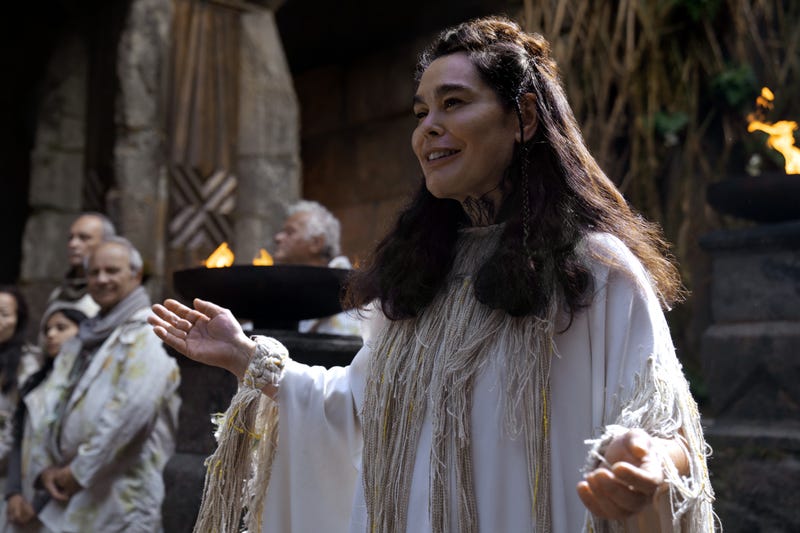
On Empire’s home planet of Trantor, anyone—including the Cleons—is subject to “memory audits” whenever it becomes necessary to remove certain bits of knowledge from their brains. This tinkering becomes increasingly slippery as the season continues; how will you know if someone’s messed with your memory if they remove the very memory of them messing with it?
But Foundation’s biggest mind-fuck comes with its exploration of Gaal (Lou Llobell) and Salvor (Leah Harvey)’s burgeoning psychic powers, and the revelation that not only is there an entire planet populated by gifted “Mentallics,” also known as “Sighted,” led by the mysterious Tellem Bond (Rachel House), there’s also a powerful psychic warrior, glimpsed in one of Gaal’s visions, who’ll cause havoc across the galaxy in the coming years. Season one of Foundation showed Hari Seldon (Jared Harris) predicting the future using his math-based “psychohistory”—and while that’s still part of season two, mysticism now has a much bigger role in the story.
The marriage plot
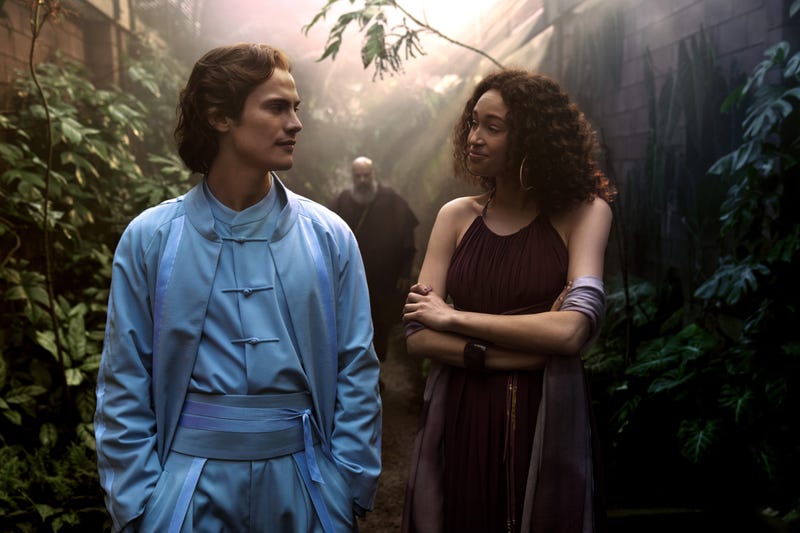
Brother Day decides it’s time to end the clone chain of succession by producing heirs in the more traditional sense, so he picks a bride: Queen Sareth (Ella-Rae Smith). She’s just endured a family tragedy she suspects Empire of plotting, and therefore isn’t sold on the arranged marriage—and she’s trying her best to be a schemer despite having big odds stacked against her. This plot line, which quickly comes to involve Brother Dawn (Cassian Bilton), brings some delicious courtly intrigue into the proceedings.
Salvor Hardin

Foundation’s most grounded character, Salvor’s big push so far this season is trying to figure out her tricky relationship with Gaal, her biological mother—and her place in Hari’s complex plan to save humanity. Unlike Gaal and Hari, she’s not a mathematical genius, but she’s level-headed, action-oriented, and is generally a damn good person to have on your side.
The production design
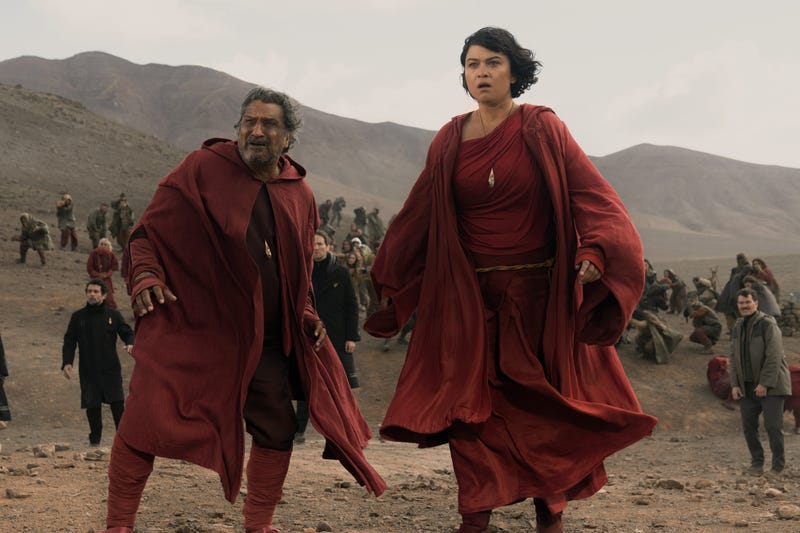
Foundation’s action spans a wide array of planets—with landscapes varying across glossy cities, gritty frontiers, endless oceans, rainforests, deserted sand dunes, and more; it also encompasses space travel on ships both enormous and sophisticated and small and scrappy, and dwellings that are both humble and palatial. But there’s a coherence to its production design that makes all the locations feel believably part of the same whole, with technology, weaponry, and biological enhancements that feel like logical progressions of what came before.
It’s high-concept, but still user-friendly

Putting it bluntly: season one took a few episodes to really get going. There was a lot of exposition to deal with, and some confusing aspects like sudden leaps in time (made even more confusing by the fact that Empire looks the same no matter what year it is). Season two moves much more briskly, and it follows a more conventional pathway, made necessary in part because it cuts between so many concurrent stories. “We wrestled with some of the time jumps in season one … but season two plays out very much in a linear fashion,” Goyer told io9. “There are some flashbacks, but they’re traditional flashbacks and they’re not really destabilized in terms of when the story is taking place.”
BECKY!
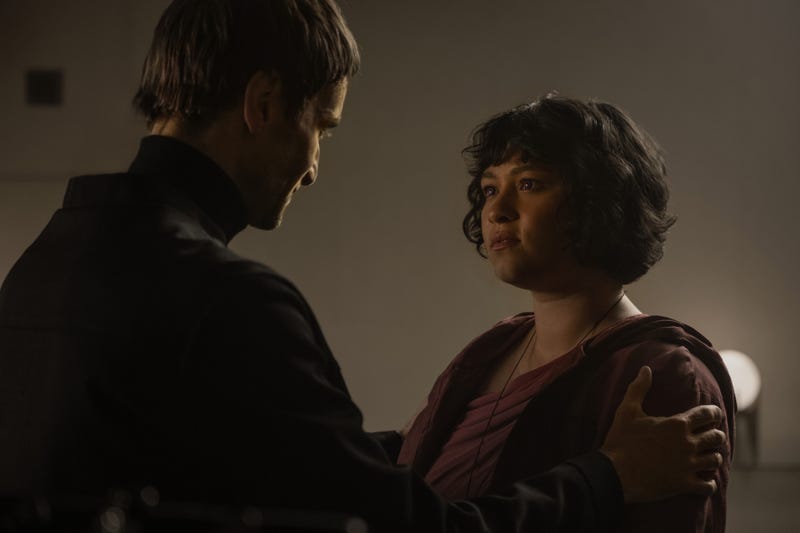
Apple TV+ hasn’t released any images of Becky, so here’s chipper Church of the Galactic Spirit acolyte Brother Constant (Isabella Laughland), a new character who is introduced riding Becky—a fierce, hulking beast known as a “bishop’s claw” who’s part transportation, part protection, and part pet. Season one established the bishop’s claw as a genuinely terrifying beast native to Terminus—where Salvor is from—so to see Becky as part of Brother Constant’s crew is pretty fantastic. (Also pretty fantastic: they named her “Becky.”)
New episodes of Foundation stream weekly on Apple TV+.
Want more entertainment news? Check out when to expect the latest Marvel, Star Wars, and DC releases, what’s coming to cinemas in Australia this year, and everything streaming this month across all platforms. Check out our dedicated Entertainment tab for more.
